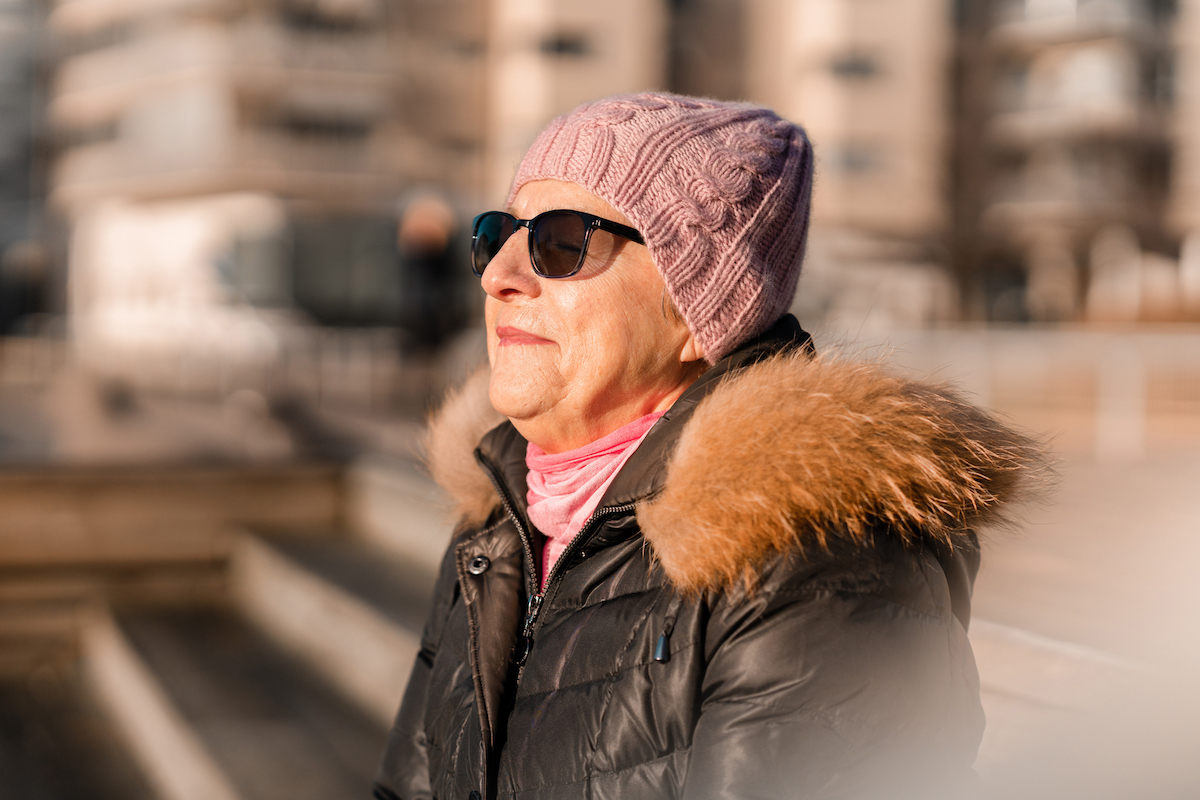<< Back
Keeping Your Skin Healthy in the Cold, Winter Months

November 08, 2021
By Nicholas Arsenault
We all hear about keeping our skin protected and healthy during the warm spring and summer months using sunscreen, avoiding sun exposure during the middle of the day and wearing hats and long sleeves to minimize sun exposure.
But your skin still needs some special tender, loving care even in the cold winter months. Colder temperatures, frigid winds and even the sun can still be strong enough to damage your skin. These elements can leave your skin susceptible to itching and cracking, and strip the layers of skin of vital moisture.
As we age, skin can become thinner, drier and more fragile. Lifestyle factors such as sun exposure, weight loss or gain, stress, what we eat and smoking can make these changes occur much more quickly.
So what can you do to help protect my skin in the coming winter months ahead?
- Moisturize Regularly: As we age, skin loses its ability to retain moisture and is at risk for drying out more quickly. While regular skin lotions can be helpful, older adults may be better suited to using heavier creams that contain such ingredients as lanolin or Vaseline (petrolatum). These ingredients can do a great job at locking in moisture and protecting your skin.
- Hydration is Key: Hydration is not just important in the summer. You can also dehydrate in the winter months. We still perspire in the cold weather. And indoor heating also can be drying to our bodies. It’s important to drink plenty of water and fluids throughout the day – talk with your healthcare provider to determine what an adequate amount of fluid to drink per day is based on your own health.
- Wearing Layers and Bundling Up: Heating homes and buildings can be incredibly drying to the skin and the cold outdoor air can put you at risk of frostbite, windburn and hypothermia. Layering up is the one of the best ways to maintain body heat and insulate against the cold while protecting your skin from the elements. This should include a hat to help cover your ears and around your face and gloves. Skin chapped by the cold air, especially as we age, can take longer to heal.
- Sunscreen is for Year-round Use: Don’t put that sunscreen away just because the summer months are over! Even with the sun being lower in the sky and not outshining as long during the day, those UV rays from the sun can still cause skin damage. Sun protection is also incredibly important when snow is present. Snow can reflect and amplify those sun rays, so be sure to apply sunscreen to exposed areas every day and throughout the day and wear sunglasses to help protect your eyes, too.
- Being Mindful of Bathing Habits: A nice hot shower or bath can be relaxing and soothing for many people especially in the colder months. But prolonged contact with hot water can strip the skin of its natural moisture and oil barriers. It’s also important to be mindful of water temperature when washing hands and to limit the time spent in the shower and bath to help protect your skin and to moisturize as we discussed above.
- Humidity Can Help: If you find the air in your home very drying, adding a humidifier can be a great benefit to your skin. The humidity also can help soothe dry, inflamed airways and dry eyes. Just be sure to follow the humidifier manufacturer’s instructions for safe operation.
- A Dermatologist and Can Help Save Your Skin: If you continue to have dry, irritated skin or concerns related to your skin, seek out a dermatologist who can help you understand your skin and develop a treatment plan to promote year-round skin health. You can always look for a dermatologist here to start your journey to healthy skin!
Nicholas Arsenault is a nurse with the Hartford HealthCare Center for Healthy Aging.